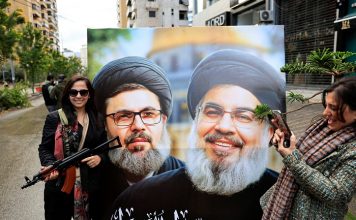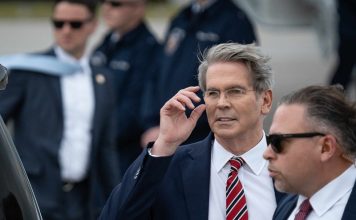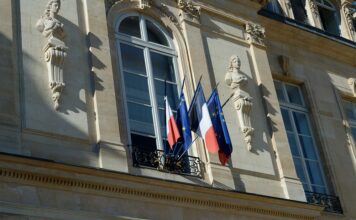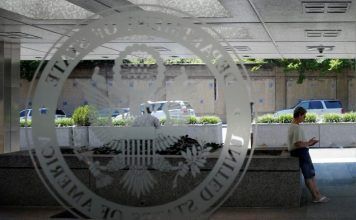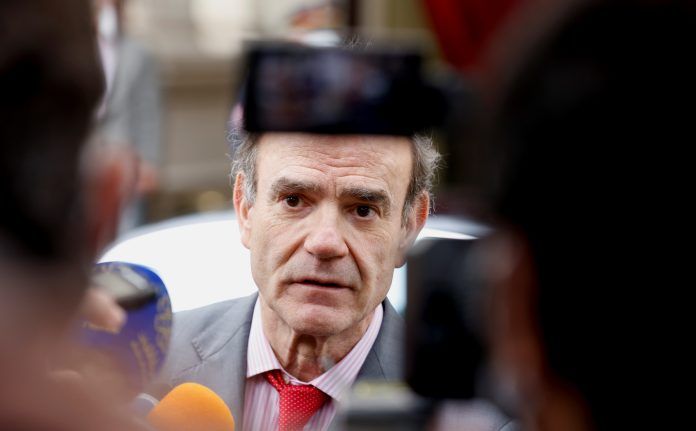
By Parisa Hafezi and Arshad Mohammed
DUBAI/WASHINGTON, Aug 8 (Reuters) – The European Union on Monday said it put forward a “final” text to revive the 2015 Iran nuclear deal as four days of indirect talks between U.S. and Iranian officials wrapped up in Vienna.
“What can be negotiated has been negotiated, and it’s now in a final text. However, behind every technical issue and every paragraph lies a political decision that needs to be taken in the capitals,” EU foreign policy chief Josep Borrell tweeted.
“If these answers are positive, then we can sign this deal,” he added as EU, Iranian and U.S. prepared to leave Vienna.
Earlier, a senior EU official told reporters that no more changes could be made to the text, which has been under negotiation for 15 months, and said he expected a final decision from the parties within a “very, very few weeks.”
“It is a package proposal… You cannot agree with page 20 and disagree with page 50. You have to say yes or no,” he said.
While Washington said it was ready to quickly reach an agreement to revive the deal on the basis of the EU proposals, Iranian officials said they would convey their “additional views and considerations” to the European Union, which coordinates the talks, after consultations in Tehran.
Iran‘s Nournews website, affiliated with the country’s Supreme National Security Council that makes the decisions in the nuclear talks, said the EU as the coordinator of the talks lacked the authority to “present its proposals as the final text”.
“The aim is to force Iran to accept the text … under pressure … when Iran, as one of the negotiating parties, does not accept it as the final text, no other authority can talk about the finalisation of the text,” it said.
Iran has made demands the United States and other Western powers view as outside the scope of reviving the deal such as insisting the International Atomic Energy Agency (IAEA) drop its claims Iran has failed to fully explain uranium traces at several undeclared sites.
Each side sought to put the onus on the other to compromise.
“They (the Iranians) repeatedly say they are prepared for a return to mutual implementation of the JCPOA (the Joint Comprehensive Plan of Action). Let’s see if their actions match their words,” a U.S. State Department spokesperson said.
Iran Nuclear Chief: We Have Technical Means to Produce Atom Bomb, No Intention of Doing So
Under the 2015 agreement, Iran curbed its nuclear program in return for relief from U.S., EU and U.N. sanctions.
But former U.S. President Donald Trump reneged on the nuclear deal in 2018 and restored harsh U.S. sanctions, prompting Tehran to start violating the agreement’s nuclear limits about a year later.
The pact seemed near revival in March but 11 months of indirect talks between Tehran and U.S. President Joe Biden’s administration in Vienna were thrown into disarray chiefly over Iran‘s insistence that Washington remove its elite Revolutionary Guards Corps, from the U.S. Foreign Terrorist Organizations list.
Reuters, citing one Iranian and one European official, reported in June that Tehran had dropped the demand.
A senior Iranian official told Reuters on Monday that “aside from Tehran’s demand about the closure of the IAEA probe, several other issues still remained to be discussed”.
Iran has also sought to obtain guarantees that no future U.S. president would renege on the deal if it were revived, as Trump did. But Biden cannot provide such ironclad assurances because the deal is a political understanding rather than a legally binding treaty.
Iranian state media hinted at this issue on Monday.
“The final agreement must ensure the rights and interests of the Iranian people and guarantee the effective and stable removal of sanctions,” Iranian Foreign Minister Hossein Amirabdollahian told Borrell in a call, state media reported.
(Reporting by Parisa Hafezi in Dubai; Arshad Mohammed in Washington; Writing by Arshad Mohammed and Parisa HafeziEditing Alistair Bell)

